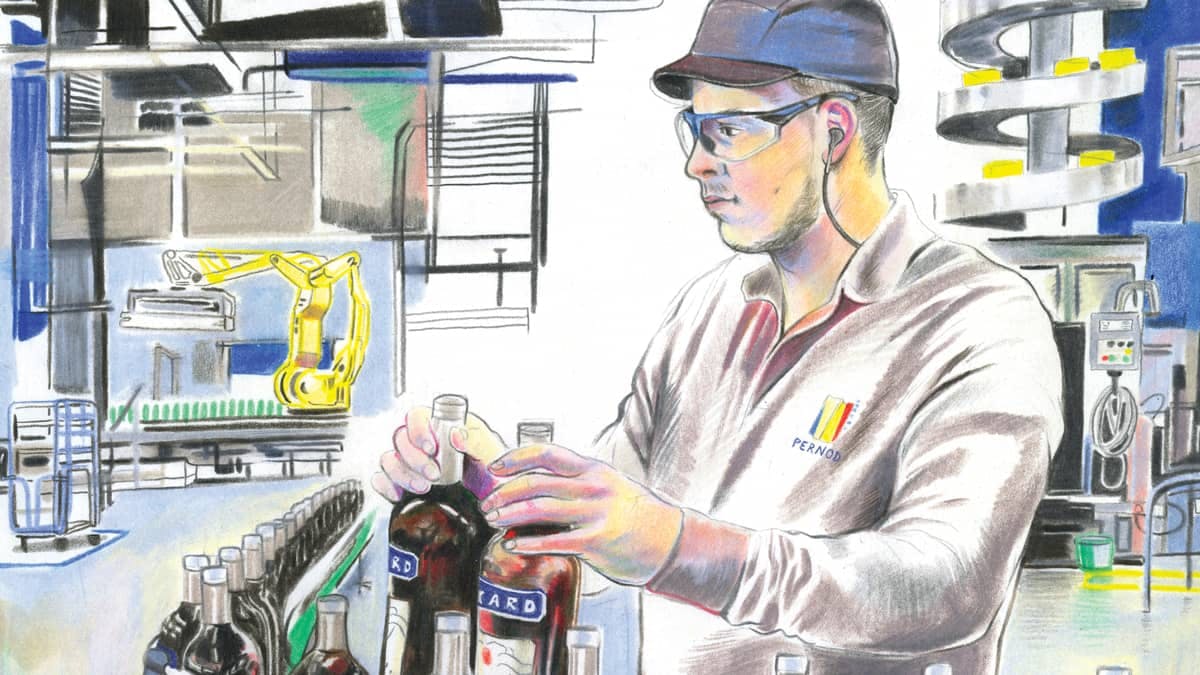Q: And how did that play out this year?
A: We have made fantastic progress. A big moment was having our decarbonisation targets approved by the Science Based Targets Initiative (SBTi), aligned with limiting global warming to 1.5ºC. We now have short- and long-term targets for 2030 and 2050.
This year, we joined both the World Business Council for Sustainable Development (WBCSD) - a coalition of global businesses working together to limit the climate crisis, restore nature and tackle inequality - and, as part of our WBCSD membership, the One Planet Business for Biodiversity (OP2B). OP2B is an international, cross-sectoral and action-oriented business coalition on biodiversity focused on regenerative agriculture - a subject very close to our own hearts.
We also signed a five-year global licensing agreement with ecoSPIRITS, which will further promote circularity in the spirits industry by replacing single use bottles with 4.5 litre refillable containers. We have already introduced a closed-loop system for Havana Club in its home market of Cuba, and anticipate the associated reduction in bottle imports and glass waste will translate into an 88% reduction in carbon emissions related to premium spirits packaging and distribution and a 99% reduction of glass waste.
![]()
To create shared value for all our stakeholders, we aim to not only produce our goods and services sustainably and responsibly, but also to foster diversity and inclusion, and create a healthy and safe environment for our employees.”

Arnavaux bottling facility, Marseille, France
In addition, we launched DRINK MORE WATER 2.0, the enhanced version of our campaign aimed at promoting responsible drinking among young adults in Europe. Bolder and more disruptive than ever, the campaign comprises on-the-ground activations such as water fountains and water distribution trucks at festivals and other events.
And, as we continue to prioritise our own people, we ran our first inclusion survey for our employees - helping us better understand and respond to their diverse needs (read more about the results of the survey on page 36).
Q: What will be your priorities in the coming years?
A: 2025 is a crucial year for our sustainability efforts. Our 2030 roadmap includes several commitments with a 2025 timeline, so we need to look at all we have achieved, assess where we have hit our targets and where we have missed them, and realign ourselves with current sustainability standards.
At that point we will refresh our strategy to prioritise and simplify the things we need to achieve in the final five years of our roadmap - as well as how we plan to reach our SBTi targets - embedding everything we’ve learned so far.
From 2025 onwards, we will also be required to comply with the European Commission’s Corporate Sustainability Reporting Directive (CSRD). CSRD is all about transparency - how we impact society and the planet, and how that in turn impacts the value creation of the business. It aims to elevate sustainability reporting to the level of financial reporting.
Thanks to our longstanding focus on sustainability, we are already in a strong position here, equipped with many of the required reporting tools - and we are finalising our double materiality assessment, which has validated that our roadmap is focused on the right topics. Our biggest challenge will be improving the robustness of the data, that we collect from third parties.
With the management team and the wider organisation fully on board with our S&R strategy, I am confident in our ability to make a lasting, long-term impact for many years to come.
